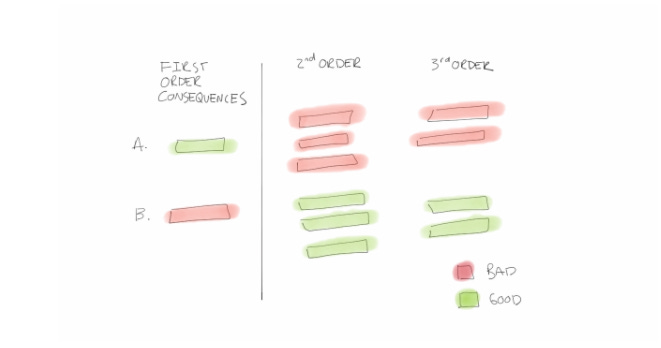How to become a better thinker using 'Mental Models'
My learnings from one of the greatest minds of the 20th century, Charlie Munger.
Happy Monday Everyone!
This week's newsletter is on how I became a better thinker using ‘Mental Models’.
Mental models are general thinking concepts. It’s your belief in how the world works. Your mental model dictates your life, meaning they shape what we think and how we understand but also shape the connections and opportunities we see. To truly unleash our brain’s superpower, we must learn to think about how we think. The brain is malleable, and we can change and shape it. Naturally, we all grow up with the belief that this is how the world works because of the environment we’re born into, our parents, friends, etc. However, as you grow older it is important to start questioning beliefs and your views on things so that you are responsible for your own world view, you are thinking for yourself and not just following what you’ve been taught from a young age.
As I started studying Philosophy, Stoicism, and other great thinkers such as Charlie Munger, Naval Ravikant, and James Clear, my mind began to expand. I started seeing things very differently and became more open-minded as I can learn from anyone and everyone. I have the power to hear and understand people’s beliefs and appreciate that the world isn’t black and white and life is very subjective.
Here are a few mental models from Charlie Munger:
Inversion: Inversion is the idea that to solve a problem sometimes you can find the solution by thinking of ‘how not to solve this problem’, for example, if you’re thinking about how you can succeed in business, you think of all the things that will make you fail in business eg. no clear plan, poor money management, poor resource management, lack of knowledge, etc and then you just avoid those things in order to succeed.
First Principles Thinking: This is one of the best ways to reverse engineer complicated situations. It’s the process of stripping everything back to basics, for example, if you have a complicated problem you separate all underlying ideas or facts from any assumptions and just leave the essentials. Once you know the first principles you can then build the rest of your knowledge around them to produce something new. A famous example is Elon Musk trying to accomplish his quest to send the first rocket to Mars. He discovered that the price of purchasing a rocket was extremely expensive, so he took a look at the first principles- What is a rocket made of? Instead of buying a finished rocket for millions, he created his own company, SpaceX, and purchased the raw materials for cheap and built the rockets himself.
Circle Of Competence: This is when you truly know what you understand, what you are good at, and where you have a competitive edge over others. By knowing your strengths you can start to gauge and work on areas where you lack knowledge and where you can improve. Understanding this will help you make better decisions and create better outcomes.
Second-Order Thinking: Usually when making decisions, we think of the immediate consequence rather than the second or third-order consequences. Have you ever tried to solve a problem but ended up creating another problem? This is usually due to only considering first-order consequences, when making decisions it’s important to think and explore long-term consequences. This also helps when it comes to committing to things, think about what else you’ll be sacrificing in the future if you say yes now.
Source: Farnam Street
Social Proof: Social proof is a cognitive bias that describes how we are heavily influenced by what others around us are doing. This is also known as groupthink or herd mentality. This happens in situations where you have to go against the grain. An example of this is the Asch Conformity Experiment, a series of studies where actors were intentionally choosing the wrong answers in a test to see if the participants will conform and also say the wrong answers, knowing that the answer was wrong. To no surprise, nearly 75% went along with the rest of the group at least once. There are various examples of social proof in life, for example when you see someone being mistreated and because no one speaks up, you don’t speak up. It’s important to consistently push to be non-conformists and independent thinkers regardless of how uncomfortable it may be.
Skill Stack: This is the idea that having a wide range of complementary skills creates a multiplier effect towards success. Every skill you learn is able to add to your set of skills and help you be of more value. Take me for example, I learnt how to design websites but I also learnt how to sell, write and create marketing strategies. Combining all these skills together has helped me build tonnes of leverage and also made me more of an asset to any team or project I’m involved in. As much as it’s great to specialise and niche your skills, make sure you’re also adding skills that will compound and increase your value.
These are just a few mental models, there are many more that you can read here. My overall message is that I want to encourage you to think about the way you think, how you think, and how you make decisions. Start to view the world as 3D rather than 1D and understand that life is a long journey of learning and unlearning. There’s not always a right or wrong answer, just our own versions of reality. Your brain is able to be transformed and we have so much untapped potential. Don’t cling on to a certain way of thinking because it will be extremely difficult to grow beyond it.
As always, feel free to reach out to me if you have any questions or want to talk further.
Subomi



